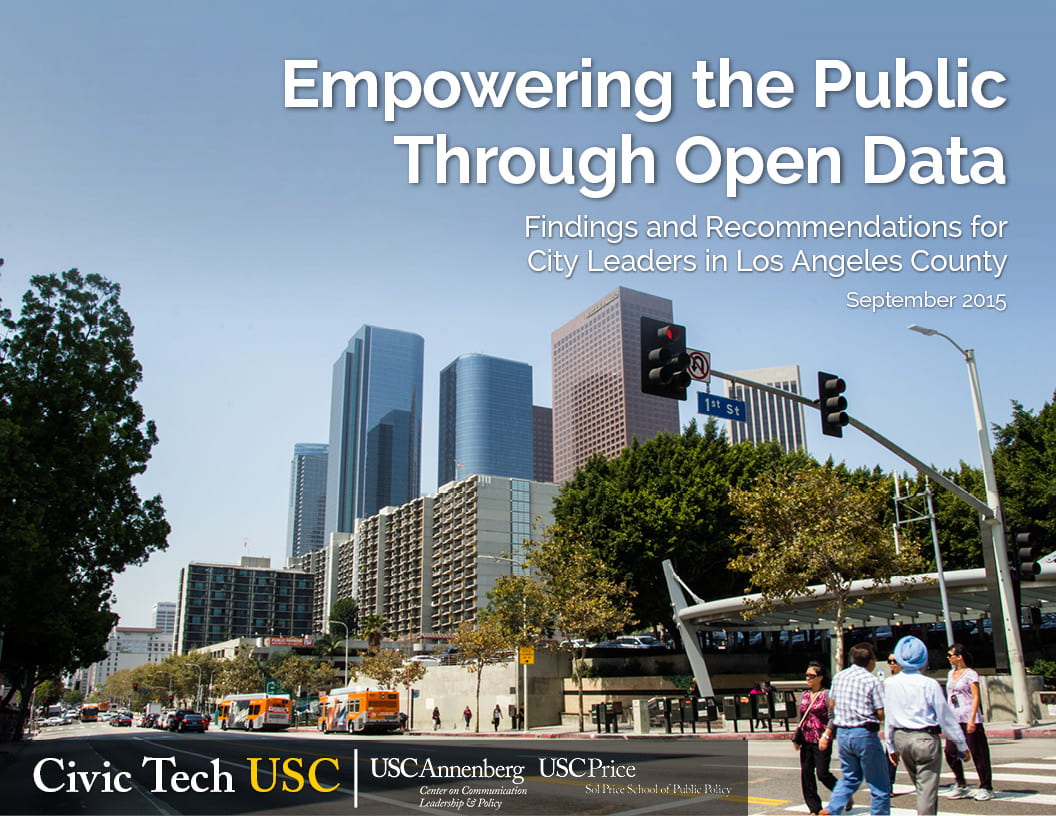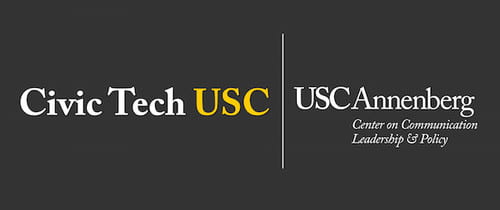Social media pioneer Nicco Mele joins CCLP as senior fellow
Author, social media pioneer and digital strategist Nicco Mele has been named a senior fellow of the USC Annenberg Center on Communication Leadership & Policy (CCLP) at the University of Southern California’s Annenberg School for Communication and Journalism, CCLP director Geoffrey Cowan announced today.
At CCLP, Mele will focus on emerging business models for digital journalism and the challenges traditional media models face online. Mele, 37, joins a distinguished group of senior fellows that includes journalists and media executives such as Jessica Yellin, Matthew Dowd, Cinny Kennard, Adam Clayton Powell III, and Narda Zacchino; authors and policymakers such as Dan Glickman, Richard Reeves, Orville Schell, Kirk Johnson, and Morley Winograd; among others.
“The project of media revitalization and reinvention remains one of the great challenges of our era, and is essential to a healthy democracy. I am delighted to join the distinguished team at CCLP,” says Mele.
“Nicco Mele is a brilliant strategist who has been at the forefront of the intersection of media, politics and technological innovation for more than a decade,” says Cowan, who also holds the Annenberg Family Chair in Communication Leadership at USC and is president of The Annenberg Foundation Trust at Sunnylands. “His invaluable experience will extend CCLP’s important work charting new models for news and examining the role of media in our democracy. We are extremely fortunate to have him join the Center on Communication Leadership & Policy.”
For the past year Mele served as senior vice president and deputy publisher of the Los Angeles Times, where he was responsible for product, content, revenue, and audience development for all of the Los Angeles Times Media Group’s brands, including growing existing digital products and services, identifying possible acquisitions, developing new business opportunities and launching new products.
Mele’s 2013 book, The End of Big: How the Internet Makes David the New Goliath, explores the consequences of living in a socially-connected society, drawing upon his experience as an innovator in politics and technology. Before moving to Southern California, Mele served on the faculty of the Harvard Kennedy School, where he taught graduate-level classes on the Internet and politics. In the spring of 2009, Mele was the Visiting Edward R. Murrow Lecturer at the Shorenstein Center on Media, Politics and Public Policy, and in the fall of 2008 he was a Fellow at the Institute of Politics at Harvard University. Prior to joining the Harvard Kennedy School, Mele taught at the Johns Hopkins Graduate School of Communication.
Mele is an active angel investor in technology startups, including Plympton (a publishing startup), UMS (mobile), Cignify (data analytics), and iDiet (health care). He is the co-founder of Echo & Co., a digital consulting firm with global clients and offices in Boston and Washington, DC. The firm aids clients facing overwhelming technological and social change, and has worked with dozens of Fortune 500 companies and other institutions on Internet strategy.
As webmaster for Governor Howard Dean’s 2004 presidential bid, Mele and the campaign team popularized the use of technology and social media that revolutionized political fundraising and reshaped American politics. The campaign was “the first high-profile political contest to use the Internet to connect supporters through early forms of social media and to raise significant donations from small donors,” according to the Los Angeles Times. Mele also ran Internet strategy for Barack Obama’s successful 2004 campaign for U.S. Senate.
Born in Ghana to Foreign Service Officer parents, he spent his early years in Asia before graduating from the College of William and Mary in Virginia with a bachelor’s degree in government.
He was named by Esquire as one of the “Best and Brightest” in America and serves on a number of private and non-profit boards, including the Nieman Foundation for Journalism at Harvard. Mele is also co-founder of the Massachusetts Poetry Festival.
Mele is married to Morra Aarons-Mele and together they have three children. He recently moved from Boston to Los Angeles.
About the Center on Communication Leadership & Policy
Based at the USC Annenberg School for Communication & Journalism, the Center on Communication Leadership & Policy is a policy center that conducts academic research and organizes programs to develop ways in which communication leadership, policy, technology and mobile innovation can contribute to a more informed electorate and a better world. For more information, visit communicationleadership.usc.edu.

